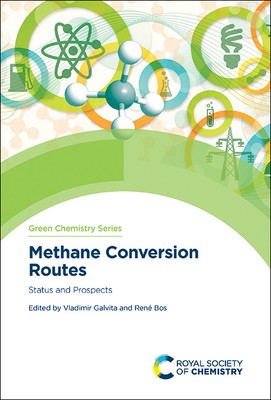
- We will send in 10–14 business days.
- Publisher: Royal Society of Chemistry
- ISBN-10: 1788014308
- ISBN-13: 9781788014304
- Format: 15.8 x 23.6 x 2.5 cm, kieti viršeliai
- Language: English
- SAVE -10% with code: EXTRA
Methane Conversion Routes (e-book) (used book) | bookbook.eu
Reviews
Description
Currently the majority of carbon-based feedstocks come from fossil fuels of which there are a finite supply. Methane is an abundantly available carbon-based feedstock, with large amounts now available through fracking and renewable sources available from biogas plants. However, methane is not very chemically reactive. One of the remaining "grand challenges" in chemistry is the development of clean, efficient, affordable processes that allow methane to be converted to other high value molecules.
Highlighting the recent advances in methane activation and direct conversion processes this book discusses the progress and current state of the art for a wide variety of alternative methane activation and subsequent conversion processes, including homogeneous- and heterogeneous catalytic, electro catalytic and pyrolytic systems. It is a useful resource for anyone working in green chemistry, catalysis and chemical engineering.
EXTRA 10 % discount with code: EXTRA
The promotion ends in 21d.21:18:24
The discount code is valid when purchasing from 10 €. Discounts do not stack.
- Publisher: Royal Society of Chemistry
- ISBN-10: 1788014308
- ISBN-13: 9781788014304
- Format: 15.8 x 23.6 x 2.5 cm, kieti viršeliai
- Language: English English
Currently the majority of carbon-based feedstocks come from fossil fuels of which there are a finite supply. Methane is an abundantly available carbon-based feedstock, with large amounts now available through fracking and renewable sources available from biogas plants. However, methane is not very chemically reactive. One of the remaining "grand challenges" in chemistry is the development of clean, efficient, affordable processes that allow methane to be converted to other high value molecules.
Highlighting the recent advances in methane activation and direct conversion processes this book discusses the progress and current state of the art for a wide variety of alternative methane activation and subsequent conversion processes, including homogeneous- and heterogeneous catalytic, electro catalytic and pyrolytic systems. It is a useful resource for anyone working in green chemistry, catalysis and chemical engineering.


Reviews